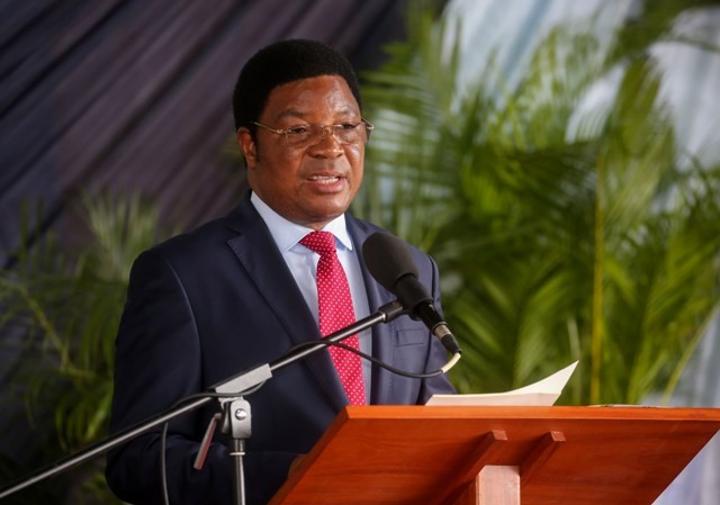Africa-Press – Tanzania. THE first batch of Covid-19 vaccines has arrived in Tanzania as Prime Minister Kassim Majaliwa insisted yesterday that it is administered voluntarily.
“The vaccine is already in the country and citizens who want it may go and get vaccinated against the pandemic,” said the premier, who reiterated the government’s stance that the vaccination is voluntary.
He made the statement during the Eid El Adha Baraza at Mtoro Mosque in Dar es Salaam. Prime Minister Majaliwa used the platform to remind Tanzanians to continue observing precautionary measures against the Covid-19 pandemic.
“Let’s continue embracing an attitude of washing hands several times with soap and clean water or alternatively, let’s use hand sanitizers and wear face masks verified by our health experts,” Mr Majaliwa informed.
He told wananchi to avoid unnecessary gatherings and observe social distancing. He further advised people to do regular exercises and eat nutritious foods to keep themselves healthy.
“For elderly people and those with chronic diseases such as heart diseases, asthma, diabetes and kidney are supposed to seriously take precautionary measures,” Mr Majaliwa said.
Furthermore, he advised the citizens to go to health centres immediately after observing Covid-19 symptoms like throat pains, headache, difficult breathing, loss of appetite and ability to smell.
On his part, Secretary General of the Muslims Council of Tanzania (BAKWATA), Sheikh Nuhu Jabir Mruma commended the government over steps it takes to control the third wave of the pandemic. Sheikh Mruma noted that measures that the government has continued to take have largely reduced the spread of the disease in the country.
“We are grateful to learn that Tanzanians are hugely responding to and adhering to directives given by leaders over measures to protect themselves from the pandemic,” he said.
The PM’s statement on voluntary vaccination comes barely two days after a leader of the opposition Chadema party, Freeman Mbowe, suggested that Tanzania should make the vaccination mandatory.
Mr Mbowe was quoted as saying that making vaccines mandatory was to observe World Health Organisation (WHO) procedures as other nations did.
Mbowe’s views, however, contradicted the WHO’s document issued in April, this year titled ‘Covid-19 and mandatory vaccination’. In the document, the WHO says: “It should be noted that the World Health Organisation (WHO) does not presently support the direction of mandates for Covid-19 vaccination,” arguing that it is better to work on information campaigns and making vaccines accessible.
The WHO further warns that policy-makers should consider specifically whether vaccines authorised for emergency or conditional use meet an evidentiary threshold for safety sufficient for a mandate.
“In the absence of sufficient evidence of safety, there would be no guarantee that mandating vaccination would achieve the goal of protecting public health.”
“Furthermore, coercive exposure of populations to a potentially harmful product would violate the ethical obligation to protect the public from unnecessary harm when the harm the product might cause outweighs the degree of harm that might exist without the product,” warns the WHO.
In addition, WHO recently issued a position statement that national authorities and conveyance operators should not require Covid-19 vaccination as a condition of international travel.
The majority of countries are opposed to compulsory inoculation. Britain’s government announced in November last year that it will not force people to have vaccinations against Covid-19.
The UK Prime Minister Boris Johnson made it clear that no one would be forced to be vaccinated, saying: “That’s not the way we do things in this country”.
England’s Chief Medical Officer Professor Chris Whitty echoed Johnson’s words and urged people to get vaccinated when they can.
“My advice – any medical practitioner’s advice – would be these should be voluntary vaccinations,” Prof Whitty stressed..







